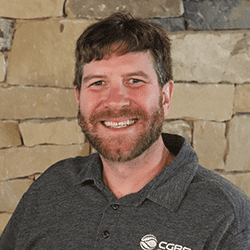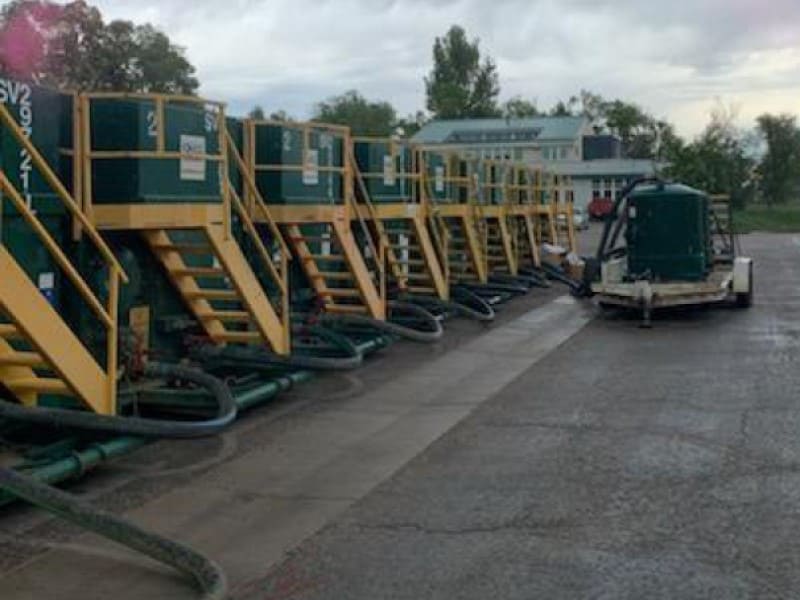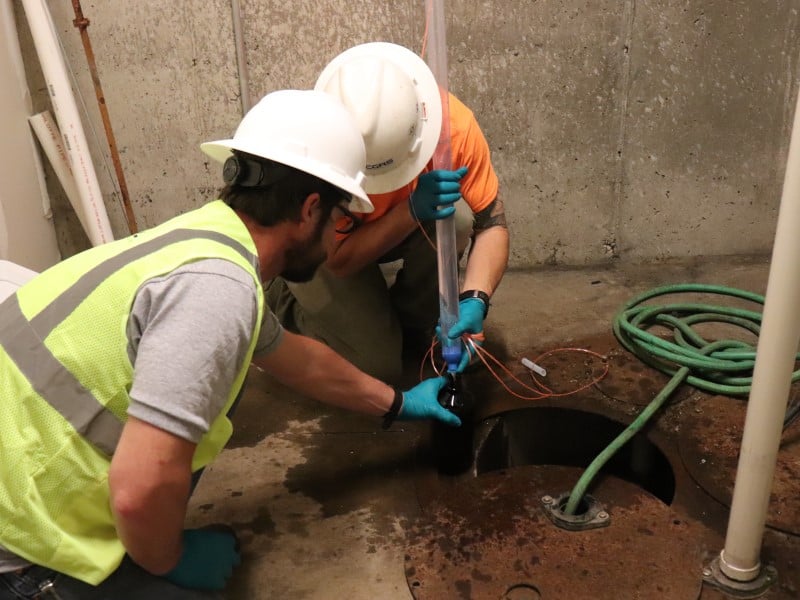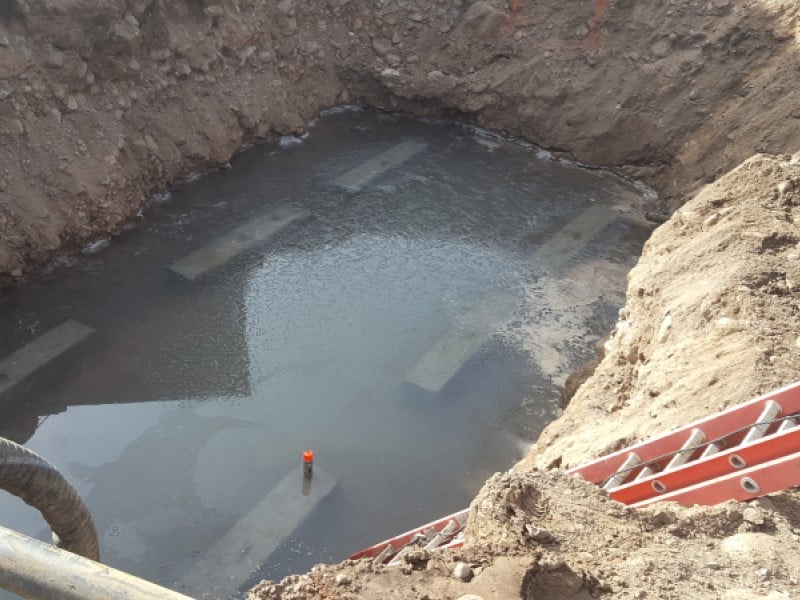Shallow groundwater in Colorado? What you need to know about dewatering
Dig deep enough anywhere and eventually you’ll encounter groundwater. In Colorado, that usually happens within the first 20 feet below ground surface, though high temperatures and a lack of precipitation may result in reduced groundwater elevations.
When encountering groundwater, the solution isn’t as easy as pouring it into a pond or down a sewage drain, according to Brent Everett, CGRS Environmental Services Project Manager and Hydrogeologist. The Colorado Water Quality Control Act states, “No person shall discharge water from a point source without first having obtained a permit … for such discharge.” That source may be a pipe, a well, a tank or truck, an MS4 system, a bulldozer or a seep, among others.
Obtaining permits
The Colorado Department of Public Health and Environment (CDPHE) has a number of regulations about disposing of groundwater – a process known as dewatering/discharge – to prevent harmful substances from entering potential drinking water aquifers, Everett said. Failure to comply with these regulations can result in substantial fines and project delays.
The permits the CDPHE requires for dewatering activities vary depending on the length and breadth of a project. Some of the more common permits CGRS helps customers obtain cover:
- new fuel-system construction projects
- underground storage tank (UST) installation and removal
- remediation-system installation
- water/wastewater projects
- groundwater well sampling
Besides a CDPHE discharge permit, construction sites will also need stormwater management plans and controls and often stormwater-system permits from the municipal government for construction inspections, Everett said.
Call a CGRS Expert:
800.288.2657

Brent Everett
Project Manager/
Hydrogeologist
Mobile: 970.317.0130
Required testing
In every case, the property owner must test the water for a combination of harmful substances depending on the geographical location of the site and the body of water to which the water will be discharged, such as a river, according to Everett. The CDPHE discharge permit for each site will identify the allowable limits for each harmful substance that may be found in its groundwater.
Those substances to test for may include:
- Petroleum hydrocarbons
- Resource Conservation and Recovery Act (RCRA) 8 metals (arsenic, lead, aluminum, selenium, chromium, mercury, barium and cadmium)
- Total dissolved solids (TDS)
- Total suspended solids (TSS)
Ongoing dewatering & treatment
When a portion of a building is underground and in continuous contact with the water table, the need to test and dispose of groundwater becomes a lengthier and frequent practice, Everett said. For example, CGRS obtains groundwater samples for monthly and quarterly testing at a building with an underground parking garage to meet the site’s CDPHE permit requirements. If after a year the site’s groundwater is found in compliance with its permit levels, the CDPHE may reduce testing frequency. However, if any of the substance levels are found out of compliance, the property owner will need to install a treatment system and perform ongoing testing of the treated water to ensure the efficacy of the treatment system, he noted.
Pre-construction advisory
While it’s likely that a project in Colorado that requires excavation will encounter groundwater, contractors and property owners need to account for changing groundwater conditions, Everett said. They should confirm that the conditions at the time of dewatering are consistent with the conditions used to design the groundwater dewatering/discharge system.
If petroleum hydrocarbon and RCRA 8 metals are within the allowable limits and only the TSS levels are in exceedance, the site may only need best management practices (BMPs), such as silt sacks, to remove sediment from the discharged water, he noted.
Whether you need to determine when and how much groundwater you may encounter, or if a stormwater management plan is required before beginning your project, CGRS’ team is skilled and equipped to obtain all necessary permits, perform testing and dispose of groundwater according to applicable regulations.





